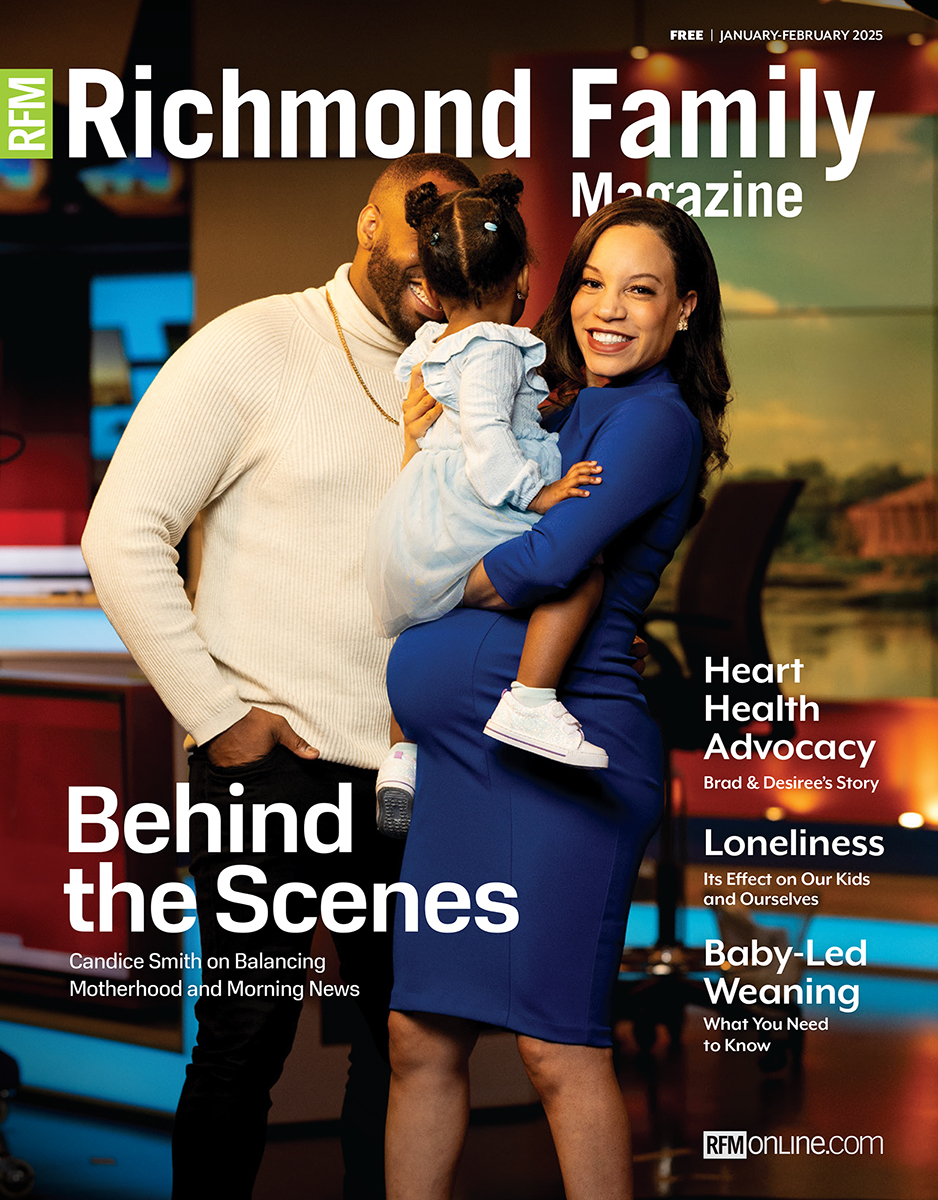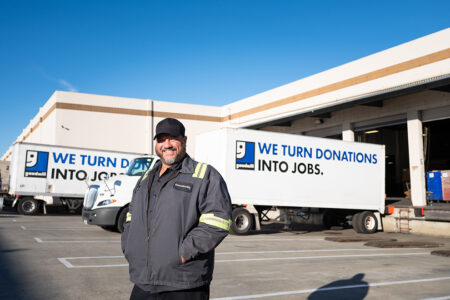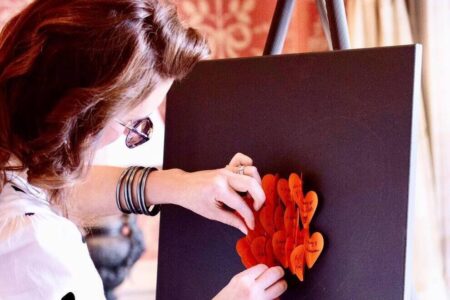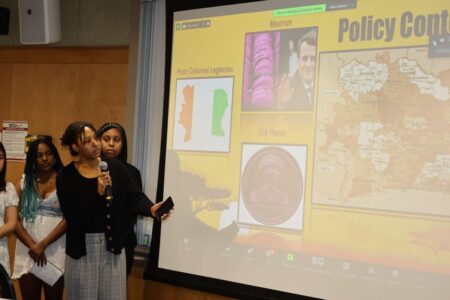When she heard a CDC spokesperson say crisis medical workers could use a bandanna or scarf over their faces as a last resort, Julie Kratzer knew she needed to do something to help healthcare workers. That’s the moment RVA Masks 4 Health was born.
“I used to sew, so I had fabric on hand. I thought I would start a group and connect some friends to make masks for healthcare workers in the Chesterfield area,” says Kratzer, noting she lives with her family in North Chesterfield.
RVA Masks 4 Health – a Facebook group with more than 4,000 members and rising – serves as a conduit between volunteer mask makers and personal protective equipment (PPE) needs in the area during the COVID-19 pandemic. No masks pass through her hands, Kratzer says. Rather, it’s about connecting resources. “We work on this from morning to night. When I wake up the next day, we are already behind. If we keep all the requests and mask makers organized, we can get out more masks.”
Kratzer’s two daughters, 5-year-old Abby and 9-year-old Carly, are helping out as well, cutting elastic and helping with material. The effects of the pandemic have had them confused, so this is a “cool way to explain what’s going on and show them something happy,” she says. “They also think it’s cool that mom has been on the news. They have had fun being part of it.”
Once she put the word out, Kratzer started getting messages and requests from people and healthcare facilities to join the group. At first, people were using the resources – patterns, materials, tips, etc. – she had posted on the group’s Facebook page. “Then people started asking for masks. My goal from the beginning was to provide a place that people in the community could plug into to help,” she says. “It’s a connection point.”

Kratzer has received some direct donations of supplies, and Couture by LK Design of Richmond provides a discount on fabric purchases, she says. “She gave us a lot of fabric, and we sent that to a business that cut it into rectangles. We have been giving that fabric out as we can. People have been buying up elastic, but as we have been getting that in, we have been distributing that [to mask makers]
as well.”
Volunteers don’t have to be skilled at sewing. Some of the people making the masks can’t leave their homes; volunteers are needed to drive around the region and pick up masks and supplies – all without any person-to-person contact. “Drivers distribute in their area. We have safety tips listed for what you do before and after the drop-off, so you don’t contaminate things you are sharing,” she says.
Kratzer also has a list of needs on the group’s Facebook page. Members of the group can access the information.
People can look at the list to see the drop-off location and take the masks there. “Some facilities have a drop-off box at the emergency room department and some give directions [for where to leave the masks],” Kratzer says. “We provide a sheet showing what volunteers have to do when they get to the facility to make the donation. They [volunteer mask makers] don’t have to let us know they are dropping off. We stay in contact with the facilities. When facilities have received enough masks, we take them off the list.”
Someone from a medical facility must join the group as a contact person before a request for masks can be made. At this time, the group is only filling mask requests for the healthcare industry and first responders.
“Hopefully, we can get to the point where the medical groups are all well-stocked and we can make masks for essential workers at different organizations,” Kratzer said.
Kratzer has listed various ways to help and get help on the group’s Facebook page. When healthcare workers put in a request through the group, Kratzer connects them to someone in their area making masks. “If someone sees a post [on social media] about somebody who needs masks, we can help,” Kratzer says.
The group uses patterns that have been publicized by medical facilities such as the Deaconess pattern, a surgical-style mask from a healthcare group in Indiana, and another pattern from Bon Secours. Kratzer has narrowed down the choices to three different mask patterns that facilities in Richmond have requested.
“The back of the mask has a pocket so you can stick a filter or surgical mask inside it,” Kratzer says. “VCU released a pattern for covering an N95 mask, which helps prolong their good masks. They have a very short supply of those masks. They are saving them for healthcare workers who are going into the room of someone with COVID-19.”
She is telling people in the group not to insert a filter in the mask. “Hospitals aren’t requesting filter material,” she says. “But they are requesting pockets where they can
put in a filter.”
Since she launched the group on March 20, volunteers have made thousands of masks. “We don’t track every mask. Some of the people we were tracking were making over one hundred masks a day, and I think it’s double that now. We had one girl who said she made two hundred masks in one day,” Kratzer says. “It’s amazing what these people are cranking out.”
All of the requests the group tries to fill are from local facilities. Kratzer refers out-of-state requests to the national group Million Mask Challenge (#millionmaskchallenge).
She admits she had no idea that RVA Masks 4 Health would grow to more than 4,000 members. “I thought it would be me and twenty people putting something together for the Chesterfield area,” she says. “It’s been quite the journey.”
After the pandemic is over, Kratzer will return her attention to her coffee-roasting business, Guide Roasting Company. “When all of this is over, we are going to have some kind of event to bring our mask makers together at our new coffee location coming soon in Midlothian,” she said.







